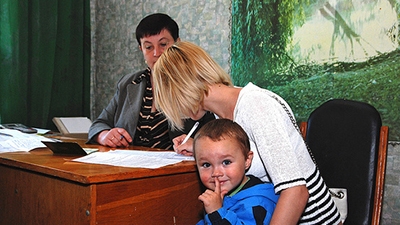Good government is key to inclusive economic development, and accountability key to good government. Enter monitoring and evaluation (M&E) – programs and systems designed to identify what works and what doesn’t in policy design and implementation. They help us build “evidence-based policy.”
Gladys Lopez-Acevedo is a senior economist with the World Bank who consults with government clients wanting to implement M&E systems. She explains what it’s all about.
How can M&E be used to increase government transparency?
The information that M&E programs and systems generate is critical for raising awareness and promoting a debate about the efficiency of public programs and policies. It can empower citizen to hold their government accountable – as long as there are also the mechanisms in place for the government to use this feedback to make changes in budgeting, planning, or efficiency of programs.
What is the link between M&E and “impact evaluation?”
Monitoring takes place when a program is implemented, and evaluation at the end of a project. Impact evaluation is a method used at the results-stage of projects to analyze differences in outcomes, with and without the program.
How can results become part of the budget-decision process?
M&E results can be fed into budget-decision-making through careful planning and implementation during the policy cycle. Some countries are more advanced than others in this process as it requires sustained engagement at the highest level of government.
What are the challenges associated with M&E implementation?
It depends on the country context and stage of development. But in general, we can identify four main challenges or requirements that must be met for M&E programs to be successful:
- engagement at the highest level of government
- incentives that promote the use and generation of performance information
- capacity to sustain the efforts of M&E
- access to good data and indicators
What type of information is needed, and why?
Having good information is critical for evidence-based policy. You need not just general information, but also tailored information. An example could be school reports that allow parents to track the children’s and schools’ performance. This information could ultimately influence the allocation of resources to these schools.
How would you describe the World Bank’s M&E partnerships with governments?
Our partnerships have been very good and fruitful. We have learned a lot from governments’ level of knowledge and their dedication and willingness to promote a culture of accountability and evaluation.
Can you give us examples of some technical assistance you have provided to strengthen M&E?
We had been working with several countries such as South Africa, Chile, Mexico, Colombia, Brazil, Rwanda, Cape Verde, Zambia, among others.
South Africa, for example, has a strong mandate from the president and the Presidency Office to manage for results. There are some performance agreements between the president and the ministries to meet predefined targets in eight outcomes that govern the national development plan.
The South African model has encountered many challenges because of a lack of direction in ministries to work together and achieve the stated outcome set by the Presidency Office. Together with country teams, we are working with the Ministry of Rural Development and Land Affairs, a pioneer in carrying out rigorous evaluation, to help them develop and implement their M&E strategic plan and to sequence their actions to build the foundations of a sound M&E in the ministry.
Chile, meanwhile, has a long history of sound monitoring and evaluation of programs. Working with country teams, we are supporting the Ministry of Planning improve the M&E of their social programs. We are helping Chile introduce ex-ante (before event) and ex-post (after event) evaluation methods and set up guidelines to carry out M&E in the ministry.
Another example is Brazil, where the Presidency is taking an active role in promoting performance management. We are supporting country teams by providing technical assistance. We hope that an assessment of M&E in the country will help inform the administration and advance performance management.

